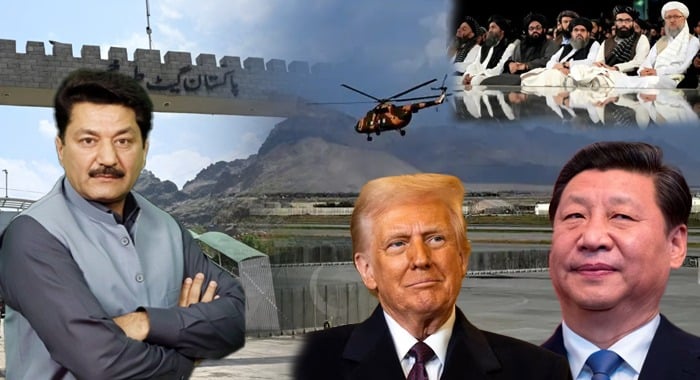With yet another looming war in wake of the current Bagram Airbase controversy, Afghanistan remains one of the most unfortunate countries in the world, having endured decades of wars and crises. The current Afghan Taliban government is the only group that has successfully challenged the might of the United States over the last 20 years, which is why the U.S. made agreements exclusively with them. The Bagram Airbase, once the American military headquarters in Afghanistan and originally built by Russia in the 1950s, remains a symbol of foreign military presence. It is a large, highly sophisticated base capable of housing thousands of troops and equipped with facilities including barracks, hospitals, sports areas, tanks, and helicopters.
The recent statements by former U.S. President Donald Trump about reclaiming Bagram Airbase carry serious implications, potentially threatening regional peace and security, especially for Pakistan. While the U.S. focuses its rhetoric on the perceived threat from China, whose manufacturing hubs lie close to Afghanistan, China has responded by affirming respect for Afghanistan’s sovereignty and independence. Similarly, Pakistan expects foreign powers to respect Afghanistan’s independence.
Pakistan’s historical experience with foreign military presence in Afghanistan shapes its current concerns. During the Soviet invasion, Pakistan aided the Afghan Mujahideen to counter Soviet access to warm waters. Today, Pakistan seeks positive relations with both Russia and Afghanistan and does not want to see any foreign military dominance in Afghan territory. Pakistan also contends with the repercussions of past NATO operations that relied heavily on its territory for supply routes, causing ongoing security challenges.
Regarding the possibility of war over Bagram, the Afghan Taliban have made their stance clear through leaders like Amir Khan Muttaki: no foreign military presence is acceptable in Afghanistan. The Taliban government insists that any demands for military bases such as Bagram are impossible to fulfill, and they reject threats to the country’s sovereignty. Hence, a forced military occupation by the U.S. seems unlikely.
Security issues persist at the border regions between Pakistan and Afghanistan. Various militant groups, including banned organisations like the TTP and BLA, use Afghan territory as safe havens. Despite repeated Pakistani warnings to the Afghan Taliban about these militants operating from Afghan soil, direct accusations have been avoided, and Pakistan acknowledges the complex interplay of militants crossing the border.
Pakistan’s internal security operations in tribal districts such as Bajaur, Waziristan, and Orakzai; areas bordering Afghanistan, are complicated by militants who often take shelter among the local population. These militants sometimes coerce villagers into providing food and shelter, placing innocent civilians in a perilous position. Pakistani security forces must balance effective counterterrorism measures with minimising harm to civilians. The use of drones and quad-copters has become a reality in these operations, raising concerns about collateral damage and the need for precise intelligence to avoid civilian casualties.
Local political leaders and representatives from the district assemblies in these regions have expressed concerns about ongoing operations. Some, like Ali Amin Gandapur, have publicly stated opposition to full-scale military operations, emphasising the impact on the common citizens and the sensitivity of these border areas.
Pakistan faces a delicate balancing act. It aims to maintain good relations with the United States while navigating its strategic ties with China and managing the complex realities of cross-border militancy. The recent defence agreement between Pakistan and Saudi Arabia has drawn global attention, potentially shifting regional dynamics.
Ultimately, the situation requires careful diplomacy, robust intelligence, and respect for Afghan sovereignty to avoid escalation. The U.S. threat to occupy Bagram again appears more like political posturing than an imminent military action, and the Afghan Taliban’s government will likely continue to resist any foreign military imposition.





